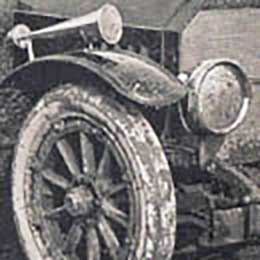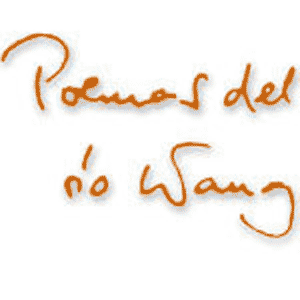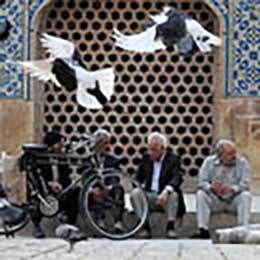The Italian soldier who is on guard against nothing and commenting on himself in the caption is Carlo Manfrini, nineteen years old at that time. Manfrini’s Russian photos have been kept for many years in his home in Dozza near Bologna, at a thousand and five hundred kilometers away from the locations photographed between June and November 1942.
Unlike lots of other photos he mainly took as a research agronomist on plants, leaves and flowers affected by diseases and insects, those included in the little book Diario di Russia, 13 giugno – 12 novembre 1942, before being published in 2010 by Guaraldi Publisher never made part of the family albums his children used to leaf through with interest and care after the war. These photos of small 6×6 format have been kept for years in a separate box which was opened for the children’s curiosity only in the presence of the photographer who commented in a reassuring and ironic tone on the stories behind the photos.
Manfrini left Padua on June 13, 1942 as a member of the Sforza Division which had to join up the Eighth Army in defense of the Don front. The division was transported in goods and cattle wagons where the soldiers soon started to be affected by dysentery. They traveled through Austria and Slovakia to Lviv, from where they went on by road towards Kantemirovka.
 Station of Lviv. Trucks unloaded and aligned in the square near the ghetto. Most of them are Fiat 504 trucks carrying anti-aircraft guns on the trailer. I remember that the leftover of the food, thrown under the cars, attracted the kids from the ghetto. They ate everything, even browsing for pieces among the oil leaking from the vehicles. The more mature girls prostituted themselves for a loaf of bread.
Station of Lviv. Trucks unloaded and aligned in the square near the ghetto. Most of them are Fiat 504 trucks carrying anti-aircraft guns on the trailer. I remember that the leftover of the food, thrown under the cars, attracted the kids from the ghetto. They ate everything, even browsing for pieces among the oil leaking from the vehicles. The more mature girls prostituted themselves for a loaf of bread. A short stop during the journey. The trucks are camouflaged with green branches. In the foreground a soldier, an artillery corporal wearing working uniform with leather bootlegs and boots.
A short stop during the journey. The trucks are camouflaged with green branches. In the foreground a soldier, an artillery corporal wearing working uniform with leather bootlegs and boots.In order to deliver the dispatches and to maintain the communication between the beginning and the end of the convoy, Manfrini moved about on a single-cylinder motorbike Sertum 500 VL. One day he was so exhausted that he fell off the motorbike and was barely spared by the truck behind him. The truck could stop, but not without running into the truck passing in front of it, and the cannon pulled by it broke its windscreen. “From the day” – he wrote – “I was assigned to the truck of the bataillon’s office”.
 By passing through an Ukrainian village, we come across a column of Russian prisoners brought back from the front. To the left you can see the truck with the broken windscreen after the motorbike accident.
By passing through an Ukrainian village, we come across a column of Russian prisoners brought back from the front. To the left you can see the truck with the broken windscreen after the motorbike accident.Many photos show the life of the soldiers and of the peasants behind the front line in the summer of 1942. The latter was certainly familiar to the Italian soldier due to his origins and to his studies of agronomy.
 During a break on the field, I wash the laundry invaded by bed bugs. The wash tub and the beetling were part of the equipment.
During a break on the field, I wash the laundry invaded by bed bugs. The wash tub and the beetling were part of the equipment. Bruno Damiani, a soldier I met in Russia, with whom I shared so many moments of that forced inactivity. He is beating the ears of corn after the harvest together with a fellow soldier. The few wheat collected and ground was used to bake primitive loafs of bread.
Bruno Damiani, a soldier I met in Russia, with whom I shared so many moments of that forced inactivity. He is beating the ears of corn after the harvest together with a fellow soldier. The few wheat collected and ground was used to bake primitive loafs of bread. Peasants collecting the leftover food for themselves. The boy to the right holds a mess-tin in his hand.
Peasants collecting the leftover food for themselves. The boy to the right holds a mess-tin in his hand. Kantemirovka. A peasant girl in front of an izba in the village where my division survived the winter months.
Kantemirovka. A peasant girl in front of an izba in the village where my division survived the winter months. Bruno Damiani and I distributing the field post. The soldier to the left calls the names: a tense expectation is seen on the faces. At the time we slept in the truck between the boxes of linen, rugs, shoes and uniforms. We were also responsible for ordering the things the division was in need. In summer we stationed in a marshy region near the village of Stalino, and we asked for bednets, which of course did not come. In early October, when it was getting cold, we ordered warm clothes such as undercoats of plush and boots of a bigger size to fit the woolen socks. One day, already in Kantemirovka, we were assigned to unload a wagon at the railway station. However, the shipment was not the longed-for warm clothes, but the bednets we had ordered in the summer.
Bruno Damiani and I distributing the field post. The soldier to the left calls the names: a tense expectation is seen on the faces. At the time we slept in the truck between the boxes of linen, rugs, shoes and uniforms. We were also responsible for ordering the things the division was in need. In summer we stationed in a marshy region near the village of Stalino, and we asked for bednets, which of course did not come. In early October, when it was getting cold, we ordered warm clothes such as undercoats of plush and boots of a bigger size to fit the woolen socks. One day, already in Kantemirovka, we were assigned to unload a wagon at the railway station. However, the shipment was not the longed-for warm clothes, but the bednets we had ordered in the summer. I’m trying the Parabellum, a light machine gun seized from the Russian prisoners. It could fire 75 shots, while our First World War model 91 had a magazine of only 6 shots.
I’m trying the Parabellum, a light machine gun seized from the Russian prisoners. It could fire 75 shots, while our First World War model 91 had a magazine of only 6 shots. Me, playing the accordion on a sunny fall afternoon. It was a recreation for the soldiers, but also for the Russian civilians who invited me to play Italian songs at their feasts of baptism and confirmation. There, on the Russian tables I often found the white bread shipped for the soldiers as well as the cognac intended to warm us.
Me, playing the accordion on a sunny fall afternoon. It was a recreation for the soldiers, but also for the Russian civilians who invited me to play Italian songs at their feasts of baptism and confirmation. There, on the Russian tables I often found the white bread shipped for the soldiers as well as the cognac intended to warm us.There is an entirely Italian mythology resumed by the motto “Italiani, brava gente” (Italians are good people), intended to sweeten the wartime behavior of the Italian fascists and soldiers, which benefited a lot from the great shadow cast by the ruthless behavior of the Nazis and the Wehrmacht. In spite of this myth, history has shown that the Italian army also committed war crimes in Libya, Ethiopia, Greece, Albania and Yugoslavia. To my knowledge there are twelve Italians charged of war crimes committed in Russia who have never been handed over to the Soviet authorities. However, there were many other people who paid for both themselves and the sins of others.
We paid dearly for the crimes of fascism, for the crimes of the Italian people in Albania, in Africa, in Russia. Yes, that’s just what I mean: the crimes of the Italian people. Because to a lesser or a greater extent every Italian was a fascist. Between two rallies everybody believed in the imperial future and in the holy war. Even those few who clearly understood and knew what was going on, if were not in prison, are guilty: guilty of silence. And the army paid for all, by fighting. Forget the bunch of officers, the aspiring assholes, the careerists, the criminals. I’m speaking about the “little army”, the real one, the one made up of poor people. My army, the one I knew. [...] We fought for a mistaken war, and we knew this. Our soldiers died miserably. The wounds were bandaged up with toilet paper. We were left without weapons, without supplies. Such was our war. In the early days the fanatics, the pure ones died smiling. But later the pure ones also started to curse. Did we fight for fascism, for Italy, for the army, for ourselves? We fought as humans, and that’s all.
Nuto Revelli, La guerra dei poveri (The war of the poor), Einaudi, 1993 (first edition 1962)
Among the Italians who managed to survive on the Russian front and the tragic retreat of 1943, there were countless witnesses of the generosity and the warm care they received from the Russians.
Manfrini survived due to a combination of special circumstances which is worth to tell. His mother had a dream that she considered an omen, in which she saw him dead. She implored the army chaplain to forward a letter to her son in which she informed him about her imminent operation and that she would refuse to submit herself to it if he would not come home. The details and the further thread of the story become uncertain at this point. Only the final result is known with certainty: Manfrini received a letter giving him, by mistake, the false news of his mother’s death. Subsequently he received permission to leave for Italy.
 The square in front of the railway station in Kiev. I arrived in Udine at the end of November, having turned twenty on November 21, during the journey.
The square in front of the railway station in Kiev. I arrived in Udine at the end of November, having turned twenty on November 21, during the journey.












Add comment